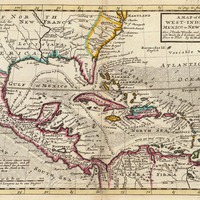Conference Presentations by Africa Trade

Africa is a vast and diverse continent where discussions of trade integration, as a driver of sus... more Africa is a vast and diverse continent where discussions of trade integration, as a driver of sustained growth and poverty reduction, have been long-standing. The continent contains an assortment of countries in terms of size, income, and openness. In terms of size, a conglomeration of some seventeen countries have populations of less than 5 million, whereas a single country has a population of over 200 million. Between these two extremes, there is a wide distribution of countries . Although Africa has the world's youngest population and some of the fastest-growing economies in the world , however, unlike other regions that have pursued deep trade integration, attaining deep trade integration has been rather sluggish. Despite this, trade has been the vehicle of socio-economic and political integration of African countries for centuries before the formation of Africa's first regional body, the Organization of African Unity (OAU), in 1963.
Since inception the current dispensation of African Union there has been accelerated efforts to ensure a better trade and economic synergies among Africa countries. The 18th ordinary session of the Assembly of Heads of States and Governments of the African Union, held in Addis Ababa, Ethiopia in January 2012, adopted a decision to establish an African Continental Free Trade Area (AFCFTA) with an indicative date of 2018. The free trade area is to include all fifty-four (54) African countries with a population of more than one billion people and a combined gross domestic product (GDP) of more than $3.4 trillion. Subsequently, in June 2015, at the twenty-fifth summit of the African Union held in South Africa, negotiations towards the establishment of AFCFTA were launched. The Agreement establishing the AfCFTA was signed on by 44 member states in Kigali Rwanda on March 21, 2018, and it entered into force on 30th May 2019 for 24 countries that had deposited their instruments of ratification. According to Article 23 of the Agreement, entry into force occurs 30 days after the 22nd instrument of ratification is deposited with the Chairperson of the African Union Commission (AUC) – the designated depositary for this purpose.
Nigeria signed on to the agreement on 7th July 2019 during the 12th Extraordinary session of the Assembly of the AU on the AfCFTA in Niamey, Niger, marking the launch of the operational phase of the AfCFTA agreement. Is important to note and acknowledge that the chief negotiator that led the last phase of negotiation to the operationalization the agreement was former and 1st Director-General/ Chief Trade Negotiator of Nigerian Office of Trade Negotiations (NOTN), Late Amb. Chiedu Osakwe, of blessed memory. Even though Nigeria has signed, on to the agreement, Nigeria has not ratified the agreement. Currently, we have 30 countries that have ratified the AfCFTA Agreement. Cameroon and Angola officially approved ratification of the AfCFTA Agreement on 31 October 2019 and 28 April 2020, respectively. Their deposit of these instruments of ratification is pending. However, the commencement of trading using AfCFTA platform has been moved from 1st July 2020 to January 2021 due to the COVID-19 pandemic outbreak. Repositioning businesses in Nigeria to reap the potential benefits of AfCFTA is therefore very imperative before trading commencement under AfCFTA.











Uploads
Conference Presentations by Africa Trade
Since inception the current dispensation of African Union there has been accelerated efforts to ensure a better trade and economic synergies among Africa countries. The 18th ordinary session of the Assembly of Heads of States and Governments of the African Union, held in Addis Ababa, Ethiopia in January 2012, adopted a decision to establish an African Continental Free Trade Area (AFCFTA) with an indicative date of 2018. The free trade area is to include all fifty-four (54) African countries with a population of more than one billion people and a combined gross domestic product (GDP) of more than $3.4 trillion. Subsequently, in June 2015, at the twenty-fifth summit of the African Union held in South Africa, negotiations towards the establishment of AFCFTA were launched. The Agreement establishing the AfCFTA was signed on by 44 member states in Kigali Rwanda on March 21, 2018, and it entered into force on 30th May 2019 for 24 countries that had deposited their instruments of ratification. According to Article 23 of the Agreement, entry into force occurs 30 days after the 22nd instrument of ratification is deposited with the Chairperson of the African Union Commission (AUC) – the designated depositary for this purpose.
Nigeria signed on to the agreement on 7th July 2019 during the 12th Extraordinary session of the Assembly of the AU on the AfCFTA in Niamey, Niger, marking the launch of the operational phase of the AfCFTA agreement. Is important to note and acknowledge that the chief negotiator that led the last phase of negotiation to the operationalization the agreement was former and 1st Director-General/ Chief Trade Negotiator of Nigerian Office of Trade Negotiations (NOTN), Late Amb. Chiedu Osakwe, of blessed memory. Even though Nigeria has signed, on to the agreement, Nigeria has not ratified the agreement. Currently, we have 30 countries that have ratified the AfCFTA Agreement. Cameroon and Angola officially approved ratification of the AfCFTA Agreement on 31 October 2019 and 28 April 2020, respectively. Their deposit of these instruments of ratification is pending. However, the commencement of trading using AfCFTA platform has been moved from 1st July 2020 to January 2021 due to the COVID-19 pandemic outbreak. Repositioning businesses in Nigeria to reap the potential benefits of AfCFTA is therefore very imperative before trading commencement under AfCFTA.
Since inception the current dispensation of African Union there has been accelerated efforts to ensure a better trade and economic synergies among Africa countries. The 18th ordinary session of the Assembly of Heads of States and Governments of the African Union, held in Addis Ababa, Ethiopia in January 2012, adopted a decision to establish an African Continental Free Trade Area (AFCFTA) with an indicative date of 2018. The free trade area is to include all fifty-four (54) African countries with a population of more than one billion people and a combined gross domestic product (GDP) of more than $3.4 trillion. Subsequently, in June 2015, at the twenty-fifth summit of the African Union held in South Africa, negotiations towards the establishment of AFCFTA were launched. The Agreement establishing the AfCFTA was signed on by 44 member states in Kigali Rwanda on March 21, 2018, and it entered into force on 30th May 2019 for 24 countries that had deposited their instruments of ratification. According to Article 23 of the Agreement, entry into force occurs 30 days after the 22nd instrument of ratification is deposited with the Chairperson of the African Union Commission (AUC) – the designated depositary for this purpose.
Nigeria signed on to the agreement on 7th July 2019 during the 12th Extraordinary session of the Assembly of the AU on the AfCFTA in Niamey, Niger, marking the launch of the operational phase of the AfCFTA agreement. Is important to note and acknowledge that the chief negotiator that led the last phase of negotiation to the operationalization the agreement was former and 1st Director-General/ Chief Trade Negotiator of Nigerian Office of Trade Negotiations (NOTN), Late Amb. Chiedu Osakwe, of blessed memory. Even though Nigeria has signed, on to the agreement, Nigeria has not ratified the agreement. Currently, we have 30 countries that have ratified the AfCFTA Agreement. Cameroon and Angola officially approved ratification of the AfCFTA Agreement on 31 October 2019 and 28 April 2020, respectively. Their deposit of these instruments of ratification is pending. However, the commencement of trading using AfCFTA platform has been moved from 1st July 2020 to January 2021 due to the COVID-19 pandemic outbreak. Repositioning businesses in Nigeria to reap the potential benefits of AfCFTA is therefore very imperative before trading commencement under AfCFTA.